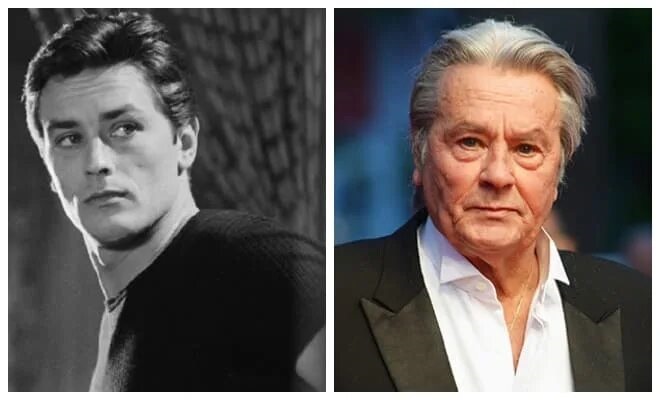
Alain Delon was the embodiment of French cinema's golden era, his life and legacy as enigmatic and intense as the characters he portrayed on screen, writes Alexander Larman, the books editor for the British ‘Spectator’’s international edition, ‘The Spectator World’.
If the actor Alain Delon had not existed, it would have been necessary to create him. His death at the age of 88 brings not just a life to a close, but an era in both French cinema and public life that has no corresponding figures in it today, for good or ill.
American cinema had the likes of Henry Fonda and John Wayne, the square-jawed epitome of righteousness and courage; France had Delon, a strikingly good-looking lounge lizard, who was capable of everything from astonishing thespian prowess to equally astonishingly awful off-screen behaviour.
There was something unknowable behind those glinting, feline eyes, more than a hint of menace beneath the purring charm. Undoubtedly this was what attracted legions of women to him on and off-screen. He revelled in this ambiguity. When he was asked whether he had an affair with Luchino Visconti, who directed him in many of his finest films – including Rocco and his Brothers and The Leopard – he simply purred ‘So what’s wrong if I had?’ Would I be guilty of something? If I like it I’ll do it. The only important thing is to love.’
Delon began his screen career in the late 1950s, after serving in the Indochina War.
His good looks and charm drew him to the attention of the talent scout Henry Willson, a powerful homosexual agent who was responsible for the careers of such figures as Rock Hudson and Tab Hunter, but Delon was uninterested in a Hollywood career. After he made his debut as a leading man in the forgettable romantic comedy Women Are Weak – which he might have adopted as a maxim for life – he had an astonishing run of form throughout the 1960s that included everything from his chillingly blank performance as Tom Ripley in René Clément’s Patricia Highsmith adaptation Plein Soleil to his unforgettable appearance in Jean-Pierre Melville’s film noir Le Samouraï as Costello, a hitman trying to find out who ordered his murder and why.
Delon himself, who continued to work with many of Europe’s finest filmmakers, established himself as a lone wolf; an actor who would turn up, give a remarkable performance on screen, and then disappear off into a mysterious but glamorous existence that was eagerly documented in the press, and its less seemly aspects largely ignored.
As an actor, Delon was peerless. His many love affairs were conducted with a mechanical soullessness that saw him seduce the most desirable women of his generation – from Jane Fonda and Nico to Romy Schneider and, apparently, Brigitte Bardot, although she coyly suggested that theirs had been a long platonic friendship rather than a romance – but seem to take very little pleasure in the act. He remarked in a 2015 documentary that ‘loneliness is part of my life. I live well with it’.
He was said to have right-wing political sympathies, and was friends with the National Front’s former leader Jean-Marie le Pen, although he always described himself as a devoted admirer of Charles de Gaulle and vacillated about his opinions, praising the National Front in one interview as ‘very important’, only to deny ever voting for them in a subsequent conversation.
The actor was so beloved by those around him that he was able to get away with behaviour that lesser, or less fortunate, people could only have dreamt of aspiring to.
Delon was himself a fantastical creation, a nation’s dreams and fantasies made flesh.
Yet oddly enough, he managed one final iconic appearance as – naturally- Caesar in the otherwise undistinguished Asterix at the Olympic Games. The role is not a demanding one, somewhere between comic relief antagonist and special guest star, but in a minute-long monologue that Delon delivers to camera, alluding to his past successes and boasting of his greatness (‘The César for Best Emperor was awarded to Caesar!’) there is still the old fire and magic to be found, those inimitable eyes glinting with life and danger. He may only have played an emperor, but as he goes to his eternal rest, Delon must have known that his legacy – for good and ill – would be a truly imperial one: a life lived on a scale that mere mortals could barely begin to comprehend.
read more in our Telegram-channel https://t.me/The_International_Affairs

 11:43 26.08.2024 •
11:43 26.08.2024 •






















